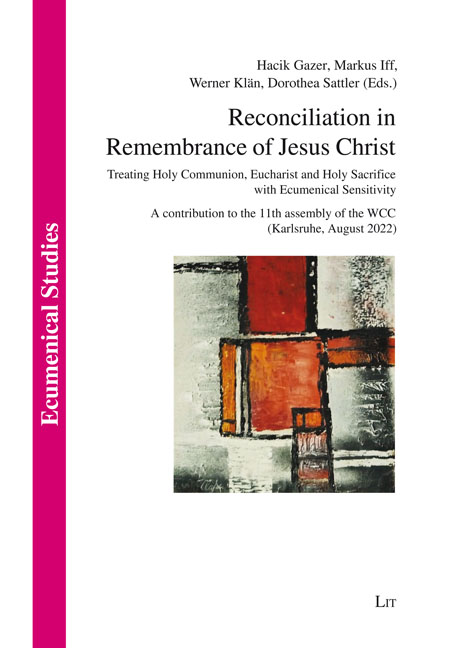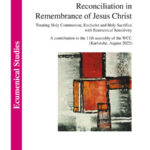Beschreibung
Since the Lima Declarations of Convergence in 1982, no other document in the international ecumenical movement has dealt with Eucharistic communion at the celebration of the Lord’s Supper in remembrance of the Holy Sacrifice of Jesus Christ.
On the occasion of the 11th Assembly of the World Council of Churches in 2022 in Karlsruhe, ecumenically minded Protestant, Free Church, Old Catholic, Roman Catholic and Orthodox theologians from Germany have taken up this topic afresh. They provide insights into the current state of ecumenical conversations, present the various traditions of confessional worship and offer practical suggestions for an ecumenically sensitive liturgical practice. The German Ecumenical Study Committee (DÖSTA) contributes a joint statement on the subject.
Memories of the 3rd Ecumenical Kirchentag (Church Congress) 2021 in Frankfurt am Main are revived. The decision to go to the Lord’s Table together, trusting in the presence of Jesus Christ in the celebration of Holy Communion, Eucharist and Holy Sacrifice, can be justified theologically, but continues to raise controversy.
On the Sunday of the Assembly in Karlsruhe, September 4, 2022, a rich range of liturgies will commemorate the life of Jesus, his death for us, and the sending of God’s Spirit. Together, all churches testify that “The love of Christ moves, reconciles and unites the world.”
Hacik Gazer, Professor of History and Theology of Eastern Christianity at the University of Erlangen-Nürnberg; Armenian Apostolic theologian.
Markus Iff, Professor of Systematic Theology and Ecumenics at the Theological Seminary of Ewersbach; pastor in the Federation of Free Evangelical Churches.
Werner Klän, retired Professor of Church History and Systematic Theology; pastor of the Independent Evangelical Lutheran Church.
Dorothea Sattler, Professor of Ecumenical Theology and Dogmatics at the University of M”unster; Roman Catholic theologian.


